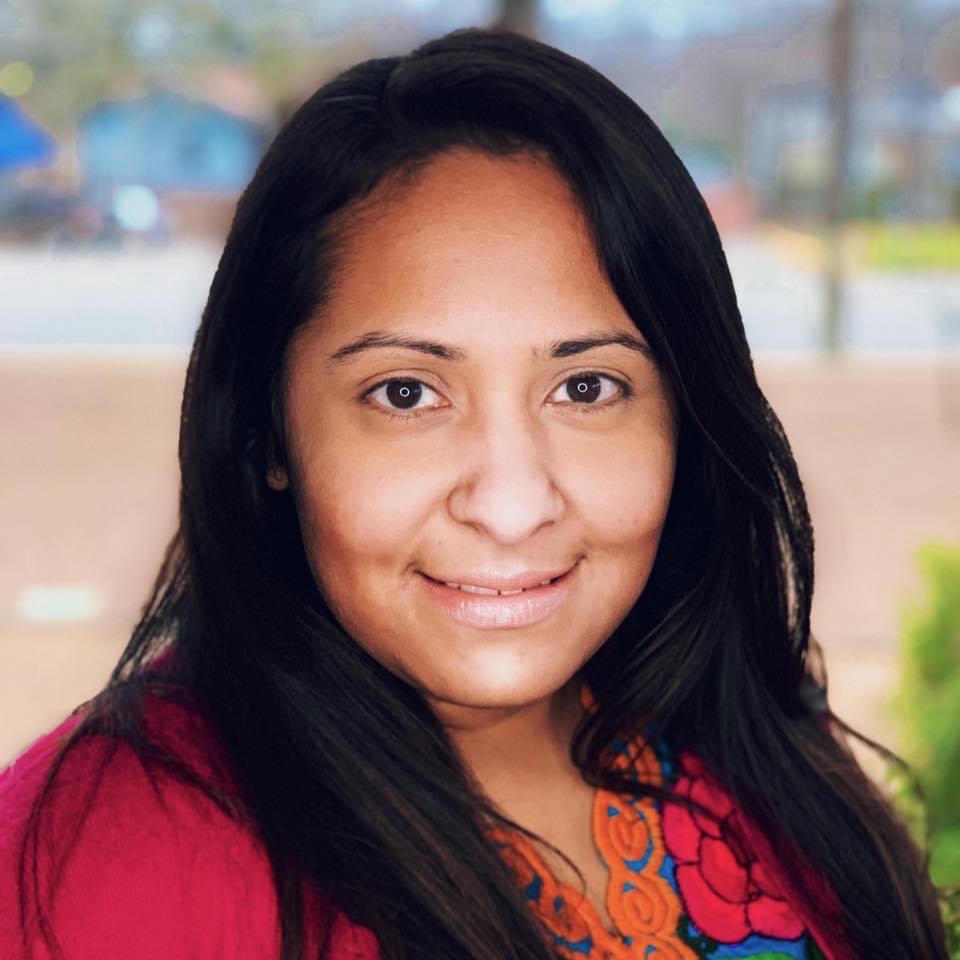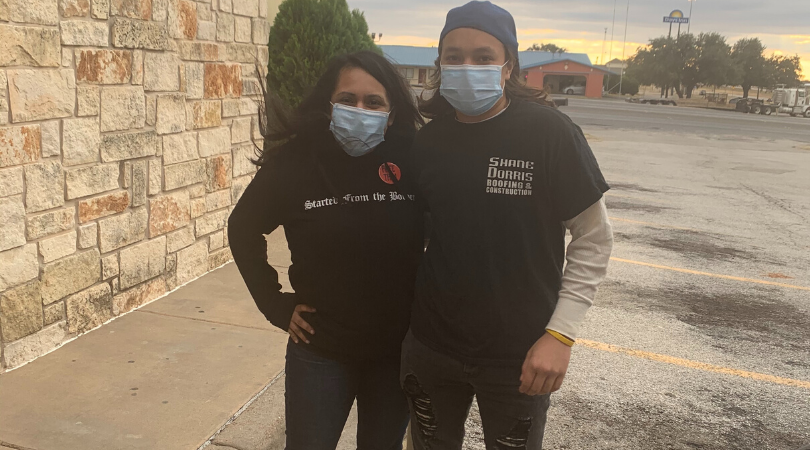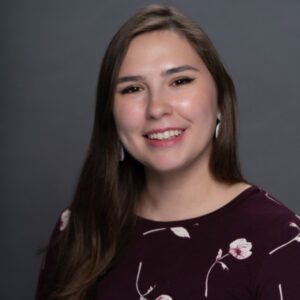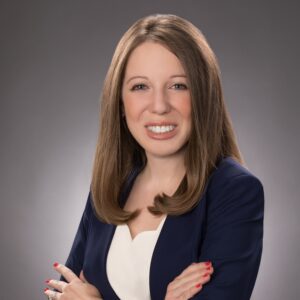
Upon first meeting Dalila Reynoso, one cannot help but immediately notice and be struck by the passion and empathy with which she regards everyone around her. Born and raised in Tyler, TX, Reynoso has worked tirelessly to advocate and fight for those in her home community.
Although Reynoso was not active within the political spectrum of her community until later as an adult, she has certainly made up for lost time. Reynoso’s advocacy work within the Texas Jail Project and within the state of Texas evidences that one does not need to be an elected official to make a substantial impact and difference within the lives of those around them.
Reynoso noted that her parents and their influence on her as a child greatly informed her political perspectives, even if she didn’t realize it at the time. She recalls that her parents worked hard to shelter her and her siblings to the world, and that she “is so privileged to have had the opportunities their suffering afforded her. I see my parents and I see the good they brought to me and the world, and I want to bring that good to others.”
Reynoso currently works as a community advocate and organizer for the Texas Jail project, but her advocacy work in Texas stretches far beyond this title. Dalia began advocating within the Deferred Action for Childhood Arrivals (DACA) policy in 2016. She went on to advocate for border asylum seekers, which lead her to drive down to the Texas-Mexico border in 2018 amidst the public outrage over the conditions immigrants crossing the borders were being held in. Reynoso organized within her to community to collect necessary supplies such as diapers, water bottles, clean clothes, and blankets to bring down to those in need. Reynoso and other members of her community drove down to the Texas-Mexico border to drop off the supplies to those who needed it and to help however they could. When speaking of her work at the border during this time, Reynoso said, “If you want to better understand something and not have a biased opinion you have to immerse yourself in it.” Reynoso refused to do nothing with the outrage she felt over how immigrants were being treated by the American government. Rather, she chose to directly act as a response. During her time at the border, Reynoso networked with other advocacy and aid workers and came into contact with an attorney from New York who was in need of a translator. The attorney processed the necessary documents to have Reynoso approved to come with her into detention centers as a translator.
Reynoso noted that her time within these detention centers changed her life forever. “As the daughter of an immigrant, I will never know what it is like to be undocumented. The people I met reminded me of what my parents would have gone through…they came to the United States undocumented and suffered a lot so I could live and be better…I saw them everywhere within the parents I met at the border.” It was during this trip that Reynoso realized her calling within political and social advocacy work, “ I had recently lost my father…doing this work and meeting these people made me feel closer to him…it was then I realized this was what I was supposed to do.”
Reynoso further realized she wanted to work within advocacy work when she left the detention centers. She noted that she couldn’t help but notice her privilege in being able to leave these places, while others and children could not. Further, “my life was forever changed, I was no longer able to ignorantly rely upon comfort with the knowledge that so many were suffering.”
Following her work at the border, Reynoso was contacted regarding an ICE raid that took place in Paris, Texas that had impacted a large number of families and individuals. Although she was not experienced with immigration law at the time, Reynoso was the first person to respond. She called her friend was a reporter, and drove up to Paris, taking the time to educate those affected of their rights, and using her voice to draw attention to the injustice that was taking place. Reynoso’s work within the ICE raid in Paris, Texas opened the door for her to take on a more direct role with assisting those being deported, and later work within another large ICE raid that took place in Mississippi. “I show up, and doors open up as I go,” Reynoso remarked regarding the evolution of her work within immigration advocacy.
Once the Coranvirus-19 pandemic started earlier in 2020, Reynoso’s traveling had to slow down. However, despite the limitations the pandemic placed upon her, Reynoso refused to stop reaching out to those around her. She said she turned to wanting to advocate for those in prison and jail. She was aware of the strong class and racial divides within the justice system and wanted to be there to speak for those whose voice had been taken from them. Reynoso remarked, “I know I can come strong, but it’s because I have such passion because I have seen so much. I see people who are too afraid to report crimes who are victims, and this gives me the courage to fight and use my privilege and voice for them. Every human being deserves to be treated with dignity and respect-whether they are in ports of entry, or in the interior of our communities.”
Reynoso noted that the criminal justice and immigration systems are parallel to each other in many ways, and that humanity is lost within both systems for those who lack resources, means, or influence. These systems are structured so as to only benefit those with some form of social means, and those who do not are consequently treated as less than human.
It was during this time Reynoso truly realized the importance and influence the local elections of judges, city council members, sheriffs and other local officials hold, as individuals are most directly impacted by power on the level closest to them on a local level. It was also at this time Reynoso realized that elected officials work for the people and are supposed to meet and interact with them to hear their concerns and needs.
Reynoso had run for a local political office- an experience that only further solidified her perspective that local elections hold power, and that those elected must be held accountable by their constituents. “I ran for office in 2019, and I cried when I lost. I want to run again, but now I see further the need to hold our elected officials accountable. You don’t need a title to bring about that change. We the people have a duty to hold our leaders accountable as much as they have a duty to us, their constituents…You don’t need to be in office to make a difference-if we coincide with one another and do our part, we can bring about real change. It is irresponsible to think that we cannot do anything because we are not elected officials, or to think we are not responsible for the suffering that takes place within the immigration and justice system just because we think we cannot do anything.”
Reynoso’s advice to young women seeking to take on leadership positions of their own is to, “Keep showing up, no matter what. I say this because of the great relationship I have now with the sheriff in my county. I had to seriously work at our relationship- it took three years for him to sit down and talk with me. I was trying to talk to him about an undocumented victim, and he would not give me the time of day. It took continuing to show and holding him accountable before he would take me seriously. I would sit at his office and tell the lady at the front desk I had all the time in the day to wait…I eventually found out where he had breakfast and waited there for him for several hours to talk to him. I think about that persistence now, and how my efforts paid off. Always keep showing up.”
Reynoso does not think she will run again for office at this current moment, as she feels that taking on such a position “would take a lot of time away from the folks in the trenches, and I feel like I would rather be with those who are hurting and be able to be present within these spaces with them…the people I work with continue to inspire me. I don’t know if I’m ready to sacrifice being with these people and hearing their voices…my connection with those I help is of such value to me.” Reynoso’s words and sacrifices speak emphatically to the role nonelected citizens play within communities, and calls attention to the responsibility all Texans hold to use their voice not only for themselves, but also for those within their community who cannot speak up on their own.




